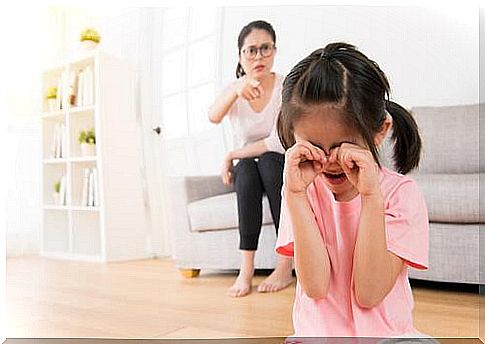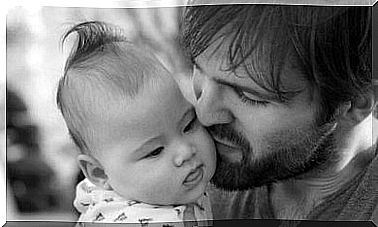6 Consequences Of Emotional Insecurity In The Family – Being Parents

There are people who can not make decisions for themselves or set personal goals. This condition is one of the main consequences of emotional insecurity in the family.
Emotional insecurity is a common practice in many families. They apply it without being aware of it. It is a process in which members are subjected to discredit, manipulation and psychological abuse.
In many cases, emotional insecurity in the family manifests as a passive-aggressive relationship. Since emotional insecurity stems from a power figure in the relationship, the weaker party gives in to the abuse.
Consequences of emotional insecurity
- Loss of identity. An adult who was emotionally insecure as a child does not know how to behave. This includes how he should and can manifest his emotions. As a rule, these are individuals who cannot find their place in society and who are unable to form a future for themselves.
- Inhibition of emotions. The most common form of emotional insecurity is to belittle emotions. An example is the child who is made to stop crying because the situation does not justify it, at least for the parent.
In the future, these children will learn to inhibit their emotions instead of controlling them. They often turn into adults who suppress their feelings because they “aren’t important”.
In many cases, the consequences of this are emotional outbursts that damage the entourage and the individual.

Other consequences of emotional insecurity
- Inability to build relationships. Isolation is one of the consequences of emotional insecurity. By losing his confidence, the individual does not believe himself capable of socializing. It is for this reason that he often becomes a lonely or unstable person.
- Another phenomenon that can be considered as a consequence of emotional insecurity is addiction. These are people who stick to toxic relationships for a long time. Indeed, because of the insecurity, they think that they deserve this treatment and that they cannot get anything better.
- Excess of self-criticism. People with emotional insecurity constantly maintain an internal dialogue that reaffirms this feeling. They are usually very critical of themselves, with a high degree of frustration, fear and limiting attitudes.
The feeling of guilt is another determining factor in their temperament, and this whatever the consequence of the acts. This is why they prefer to stay on the sidelines of any situation.
- Potential emotional abuser. Children who are emotionally insecure can become adult abusers. When one has failed to restore a person’s emotional security, they often repeat the same pattern in adulthood. The story continues with his children and the rest of the family.
Harassment as a form of emotional insecurity
Contrary to popular belief, bullying is not just a phenomenon in schools and playgrounds. We can also experience situations of psychological harassment within the family nucleus. This is the case with emotional insecurity in the family.
Many times, parents have a habit of criticizing children in order to argue with them or correct behavior.
The effects of criticism in children are not always what you would expect. On the contrary, they can reaffirm a condition that one wishes to correct.

Again, reference should be made to positive reinforcement. It is the ideal technique for the guidance of children, instead of threats and punishments.
This behavior is very common in overweight children, for example. Parents use derogatory terms or make heavy jokes to make the child aware of his weight problem. Thus, unwittingly, parents become abusers and do not validate the feelings of their children.
Adult revalidation
Reversing the effects of emotional insecurity in the family is a slow process. Nevertheless, it is possible to “free” the adult from all the a priori to which he was subjected during childhood.
- The first step must be to forgive the parents. The latter have undoubtedly themselves been victims of emotional insecurity in their families. This is why they repeat the same pattern with their children. Indeed, this type of behavior is carried out unconsciously.
- The second step should be to strengthen a positive internal dialogue for emotional control. Instead of setting big goals, the individual should formulate short-term goals. Each step should be reinforced with positive and motivating messages. This will help control the level of frustration and insecurity.









